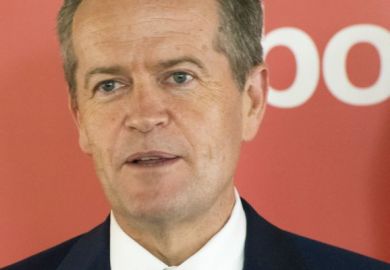When Andrew Hamilton, president of New York University, spoke about how his institution had ditched its past as a “relatively mediocre, regional commuter school” on its journey to becoming “world-class”, not everyone in the audience at Times Higher Education’s recent Young Universities Summit agreed with his message.
Rhonda Lenton, who took over as president of York University in Toronto last year, challenged Dr Hamilton in a question from the floor and, in her own speech, warned about the “risks of university differentiation” between mutually exclusive categories of teaching and research, “access versus excellence”, and regional and global.
The leader of Canada’s third-largest higher education institution – which is also, at the moment, the scene of the longest-running strike at an English-speaking university in the country – has her own message about “inclusive excellence”. Dr Lenton describes York as having “a very high number of commuter students” – 45 per cent being first-generation students, 75 per cent working “20 hours a week or more in order to put themselves through academic studies” – and a “commitment to access and social justice”.
Does she think that drawing a distinction between regional and global universities is potentially dangerous?
“I do. I think that it can be seen in the US already in particular that a number of universities that initially thought that there was a significant future in leadership as a regional university have really been struggling with that,” Dr Lenton told THE at the summit, held at the University of South Florida in Tampa.
“Because it’s very difficult to really be thinking about how you are producing globally educated citizens…if you are not thinking internationally.”
In her speech, Dr Lenton argued that it was crucial “for students in any university to have access to international opportunities” to give them a route to good jobs and to meet demand from employers all over the world for graduates with a global perspective.
There was “a moment in Ontario when the higher education council of Ontario suggested a category of regional universities”, Dr Lenton told THE, adding that she had “vehemently” opposed this.
In her speech on the “quandaries” facing younger institutions, Dr Lenton countered the argument made by some at the summit, including Professor Hamilton, “that it is the academic quality of the students that is paramount – that is the key metric in defining excellence for your institution”.
While some institutions are “admitting students who already have excellent academic standards”, the “value of education for a more diverse student population has the potential to have…significantly greater impact”, she added.
“I’m not going to criticise Harvard, Oxford and the Ivy League universities for wanting to be exclusive and elite. If that’s their definition of excellence, then fine,” she told THE.
But she called for thoughtful approaches to addressing “what an access agenda means for defining excellence” and for the construction of “other metrics that give a rounder picture of what we’re all about” to capture the true “value add” provided to students.
On access, Dr Lenton draws some lessons from her upbringing in Winnipeg, Manitoba, where she was raised by parents who “finished high school but neither of them had any higher education”.
It has “had a profound impact on me to see that in one generation, when a country has a high upward mobility, high social mobility, you can go from parents who had no university at all to being university president”, she continued.
Dr Lenton said that universities have a crucial role to play in the context of “the whole populist movement, part of [which] is about feeling left behind”, referring to her worries about statistics that show social mobility stalling.
Ensuring access for a diverse body of students is about “ensuring that we’re not losing potential, but also [not losing] the stability that societies enjoy”, she said.
Alongside this debate, Dr Lenton is contending with the strike at York, which has been mounted by junior academics in the local branch of the Canadian Union of Public Employees. They say that there have been dramatic increases in the proportion of casual staff at the university since 2000. Some members have now returned to work, after 15 weeks of action.
Speaking before the election of a new government in Ontario, Dr Lenton said that “system-wide issues” could not be resolved in an agreement at one institution, and that York has “better job security…higher wages…higher benefits than any other settlement that took place in Ontario”.
She highlighted “principles” at stake for the university, including “not compromising our academic reputation by handing out full-time positions – they have to be applied for, they have to be based on merit”, barring “a few exceptional cases”.
POSTSCRIPT:
Print headline: Can outreach and excellence coexist?
Register to continue
Why register?
- Registration is free and only takes a moment
- Once registered, you can read 3 articles a month
- Sign up for our newsletter
Subscribe
Or subscribe for unlimited access to:
- Unlimited access to news, views, insights & reviews
- Digital editions
- Digital access to THE’s university and college rankings analysis
Already registered or a current subscriber? Login









